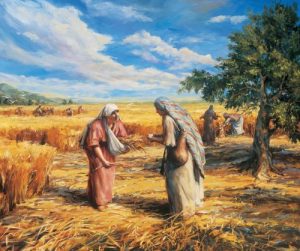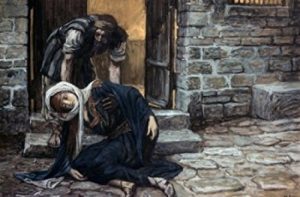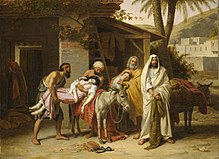
Shownotes
Wisdom-Trek / Creating a Legacy
Welcome to Day 1331 of our Wisdom-Trek, and thank you for joining me.
I am Guthrie Chamberlain, Your Guide to Wisdom
Mastering the Bible – Ruth and Crucial Story-lines – Worldview Wednesday
Wisdom - the final frontier to true knowledge. Welcome to Wisdom-Trek where our mission is to create a legacy of wisdom, to seek out discernment and insights, and to boldly grow where few have chosen to grow before.
Hello, my friend, I am Guthrie Chamberlain, your captain on our journey to increase wisdom and create a living legacy. Thank you for joining us today as we explore wisdom on our 2nd millennium of podcasts. This is Day 1331 of our trek, and it is Worldview Wednesday. Creating a Biblical worldview is important to have a proper perspective on today’s current events.
To establish a Biblical Worldview, you must also have a proper understanding of God and His Word. Our focus for the next several months on Worldview Wednesday is Mastering the Bible, through a series of brief insights. These insights are extracted from a book of the same title from one of today’s most prominent Hebrew Scholars, Dr. Micheal S. Heiser. This book is a collection of insights designed to help you understand the Bible better. When we let the Bible be what it is, we can understand it as the original readers did and as its writers intended. Each week we will explore two insights.
Mastering the Bible – Ruth and Crucial Story-lines
Insight Forty-One: The Book of Ruth Takes Place During the Days of the Judges
The period of the book of Judges was awful. The book runs through cycle after cycle of Israel’s spiritual failure, God’s punishment for their faithlessness by means of foreign oppressors, Israel’s desperate cries for deliverance, and God’s response in sending a judge. Sin, suffer, despair, deliverance, repeat.
One of the key things to observe in the book is that the oppressors of God's people were foreigners—people to whom the land did not belong. At times God’s instrument of punishment for sin was a people group whom Israel was supposed to have driven from the land but didn’t. At other times, it was a people group from the outside. The point is this: the presence of foreigners meant bad things. They were unpopular.
This is the backdrop for the story of Ruth. The book opens with these statements from Ruth 1:1-4.
In the days when the judges ruled in Israel, a severe famine came upon the land. So a man from Bethlehem in Judah left his home and went to live in the country of Moab, taking his wife and two sons with him. The man’s name was Elimelech, and his wife was Naomi. Their two sons were Mahlon and Kilion. They were Ephrathites from Bethlehem in the land of Judah. And when they reached Moab, they settled there. Then Elimelech died, and Naomi was left with her two sons. The two sons married Moabite women. One married a woman named Orpah, and the other a woman named Ruth.
Ruth was a Moabitess—a foreigner. The Moabites were Israel’s oppressors during the judgeship of Ehud (Judges 3). Israel suffered under the thumb of Eglon, the king of the Moabites, for eighteen years (Judges 3:12—14). To many in Israel, Ruth was a symbol of an enemy.

In view of this backdrop, the story of Ruth is truly remarkable. It stands to reason that no Israelite would have the slightest reason to help her. Instead, when the book’s ancient readers encountered the beginning of the book, they would have expected the people of God to make things harder for her. But Boaz was different. He was a living illustration of how Israel was to bless the foreign nations (Genesis 12:3).
Even more astonishing, Ruth was destined to become the great-grandmother of David (Ruth 4:17-20). Out of the harshest of circumstances—poverty and prejudice and deep-seated wounds of the past—God would raise up the ideal king, whose dynasty would produce the Messiah. If we miss the context of Ruth's story, we miss its most dramatic points of impact.
Insight Forty-Two: In the Historical Books, a Person’s Tribe and Hometown Are Often Crucial Parts of the Story-line

One of the things Dr. Heiser tells people who want to become serious students of the Bible is that they should read the historical narratives in both testaments like they’re fiction. Yes, you heard that correctly—fiction. He doesn’t say that because he thinks they are fiction. He says that because of the way our minds work when we read fiction, as opposed to a textbook, for example. We instinctively know when reading a novel that a locale, a line, and even a word might pop up later in the story. We are alert to the fact that the author is doing things to direct our reading.
That’s precisely how we need to read the historical books. They aren’t textbooks. Israel’s history is presented to us as story, and the people who wrote the stories were clever storytellers. The problem is that the hints they drop to lead the reader in one direction or another are often lost on us because we live in another time and place.
One of the best examples is the offensive story of Judges 19, where a certain Levite allowed his concubine to be repeatedly sexually abused. The woman died from the incident, prompting the Levite to exact vengeance. But not until he’d dismembered the woman’s body. On the surface, the repulsive episode reminds us that in the time of the judges “everyone did what was right in his own eyes” (Judges 17:6; 21:25). But there’s more to it than that.
To catch the meaning, we need to recall that Judges was written centuries after its events - during the period after the days of Solomon when the kingdom split in two. The Levite in our story was from “the hill country of Ephraim” (Judges 19:1), which readers immediately associated with the heart of the apostate northern kingdom. The Levite is thus cast as a villain from the first verse. The concubine, on the other hand, was from Bethlehem of Judah (Judges 19:2), the town of David, the ideal king. The woman had run away to her home, and now the Levite had come to Bethlehem to bring her back (Judges 19:3-9).
On the way home, the Levite’s servant suggested they spend the night in Jebus, another name for Jerusalem, which would become the city of David (Judges 19:10). The Levite rejected the idea, since the city was under the control of foreigners, considered gentiles. Instead, they went to Gibeah (Judges. 19:12.). Gibeah was a city in the territory of Benjamin, the tribe of Saul, who was Israel’s first king and an enemy to David. It was in Gibeah that the horrible abuse occurred. The men of Gibeah—associated with Saul—are the rapists and killers. The Levite sends pieces of the woman to the rest of the tribes and demands revenge (Judges 19:29-30). The resulting incident that closes the book of Judges is that the tribe of Benjamin is nearly exterminated but is spared.
Ancient Israelite readers would see a victim associated with David suffering at the hands of people associated with Saul. The writer was prepping them for loyalty to David and his line. By the time they read the last line of the book in Judges 21:25, "In those days Israel had no king; all the people did whatever seemed right in their own eyes." The author of Judges had his readers right where he wanted them.
That will conclude this week’s lesson on another two insights from Dr. Heiser’s book “Mastering the Bible.” Next Worldview Wednesday, we will continue with two additional insights. I believe you will find each Worldview Wednesday an interesting topic to consider as we build our Biblical worldview.

Tomorrow we will continue with our 3-minute humor nugget that will provide you with a bit of cheer and help you to lighten up and live a rich and satisfying life. So encourage your friends and family to join us and then come along with us tomorrow for another day of our Wisdom-Trek, Creating a Legacy.
If you would like to listen to any of our past 1330 treks or read the Wisdom Journal, they are available at Wisdom-Trek.com. I encourage you to subscribe to Wisdom-Trek on your favorite podcast player so that each day’s trek will be downloaded automatically.
Thank you for allowing me to be your guide, mentor, and, most of all, your friend as I serve you through the Wisdom-Trek podcast and journal.
As we take this trek together, let us always:
- Live Abundantly (Fully)
- Love Unconditionally
- Listen Intentionally
- Learn Continuously
- Lend to others Generously
- Lead with Integrity
- Leave a Living Legacy Each Day
I am Guthrie Chamberlain reminding you to Keep Moving Forward, Enjoy Your Journey, and Create a Great Day Everyday! See you tomorrow!